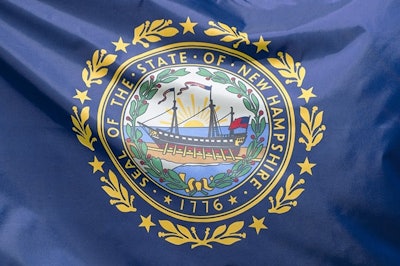
New Hampshire lawmakers are considering roughly a dozen cannabis-related bills that have been filed for the 2020 session, including one that would allow patients to cultivate medical cannabis at home and two separate adult-use legalization proposals, according to a New Hampshire Public Radio report.
The Senate Health and Human Services Committee heard a handful of bills Jan. 22 that would expand the state’s medical cannabis program to include additional qualifying conditions, such as autism, and that would also address issues like program access and affordability, the news outlet reported.
Some of the bills would allow qualified medical cannabis patients to access additional dispensaries around the state, offer employment protections for qualified patients and allow patients visiting from other states to purchase medical cannabis products from New Hampshire’s dispensaries, according to New Hampshire Public Radio.
Another piece of legislation proposes a “home grow” option that would allow patients to cultivate their own cannabis. The legislature passed a similar bill last year, but the legislation was ultimately vetoed by Gov. Chris Sununu. The House voted to override the veto, but the Senate vote fell short of the required two-thirds majority to override the veto in that chamber.
Two adult-use legalization bills have also been introduced this year. One would allow adults to possess up to 3/4 of an ounce of cannabis and to grow up to six plants at home, but would not create a commercial market in the state, New Hampshire Public Radio reported.
During last year’s legislative session, the New Hampshire House voted 200-163 to pass an adult-use legalization bill, but the Senate voted to delay the legislation after the Judiciary Committee said the issue needs further consideration.
Sununu remains opposed to legalization.























